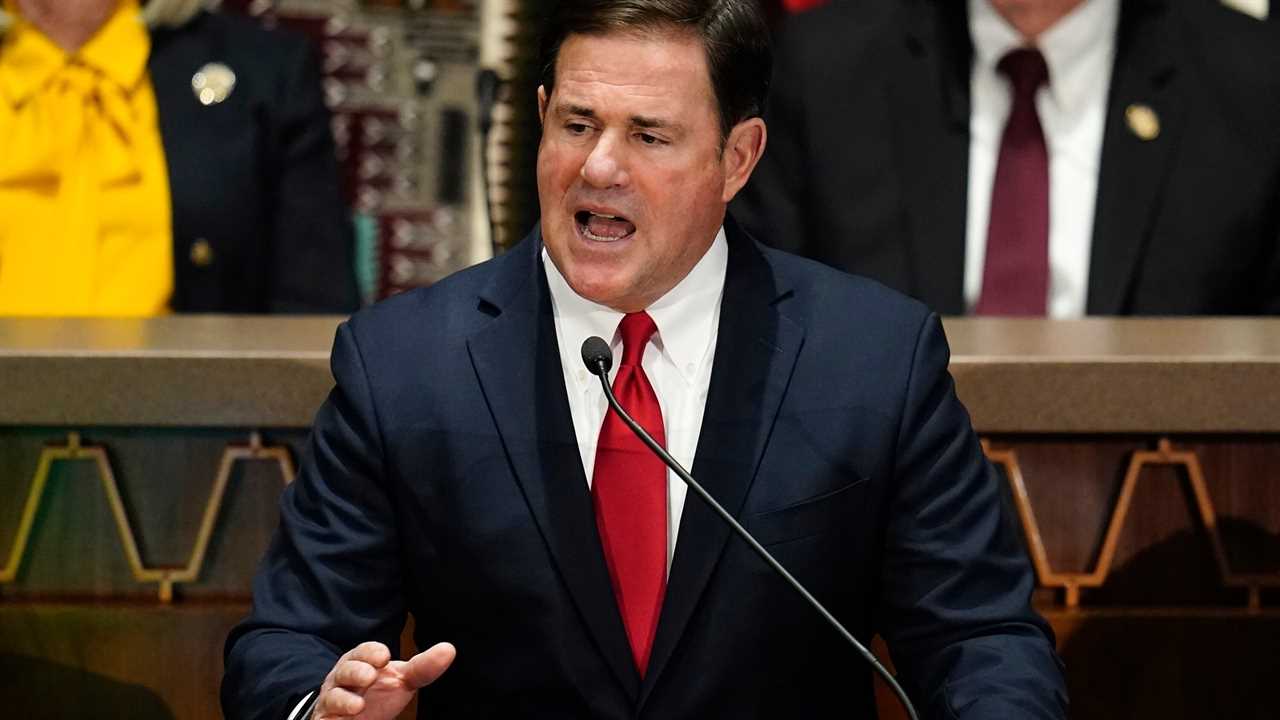
Gov. Doug Ducey of Arizona has signed legislation requiring voters to prove their citizenship in order to vote in a presidential election, swiftly drawing a legal challenge from voting rights activists who argued that it could keep tens of thousands of voters from casting a ballot.The Arizona measure, passed into law on Wednesday, also requires newly registered voters to provide a proof of address, which could have a disproportionate impact on students, older voters who no longer drive, low-income voters and Native Americans.Legal experts said the new rules might run afoul of both federal law and recent Supreme Court decisions. On Wednesday, Mi Familia Vota, a voting rights group, filed a federal lawsuit challenging the law.The law is one of several new voting restrictions that the Republican-led Legislature in Arizona is working to pass this year, despite multiple investigations and a partisan election review that found no evidence of widespread fraud in the state in the 2020 election.It is the latest sign that the push by Republican lawmakers to tighten voting rules after the 2020 election has not abated. G.O.P. lawmakers in Mississippi, Idaho and other states have also proposed new identification requirements. And legislators in Georgia and Florida have advanced a second round of major changes to election laws.Arizona Republicans said that the law would shore up election security, although they did not point to any evidence of significant fraud.“Election integrity means counting every lawful vote and prohibiting any attempt to illegally cast a vote,” Mr. Ducey said in a letter explaining his support for the legislation. Speaking to local reporters, he defended the constitutionality of the law. “If somebody on the left wants to challenge it, have at it,” he said, according to The Arizona Republic. “Nothing’s unconstitutional unless it’s an enumerated right and that’s not what this law is.”But lawyers for the Republican-controlled Legislature had previously suggested that the bill could flout federal law.In 2013, the Supreme Court ruled that Arizona could require proof of citizenship in state elections, but that it must accept the federal voter registration form for federal elections. Those forms ask voters to attest that they are citizens but do not require documentation.ImageCritics of the Arizona law said its potential impact extends far beyond 31,500 voters. Credit...Adriana Zehbrauskas for The New York TimesThe decision set up a bifurcated system in Arizona. There are now roughly 31,500 “federal-only” voters in the state, or people who are not eligible to vote in state elections because they have not provided documents that prove citizenship as required by Arizona law, according to the secretary of state’s office.The new law essentially contradicts the Supreme Court decision, forcing all voters to meet the state’s requirements for a presidential election.In testimony before the Arizona House’s Rules Committee last month, Jennifer Holder, a lawyer for the Legislature, told Speaker Rusty Bowers that the issue had “been squarely addressed by that Supreme Court case.”Legal experts said the new law could be a vehicle to challenge the 2013 Supreme Court ruling, and could push the court to re-examine broader voting laws and regulations.“It certainly is attempting to undo the Arizona v. I.T.C. decision,” said Jon Greenbaum, chief counsel for the Lawyers’ Committee for Civil Rights Under Law, referring to the 2013 Supreme Court decision. “And maybe part of this is thinking you’ve got a new Supreme Court now, and that Supreme Court may look at things differently.”Critics of the Arizona law say that its impact extends far beyond 31,500 voters, and that it could cause many more people to be pushed off the rolls.“Those people won’t get their ballot in the mail,” said Alex Gulotta, the state director for All Voting Is Local, a voting rights group. “They may go try and vote and they’ll find out they’re no longer registered and it’s too late to register, and they will in fact be disenfranchised for this election in November.”Understand the Battle Over U.S. Voting Rights
Card 1 of 6Why are voting rights an issue now?In 2020, as a result of the pandemic, millions embraced voting early in person or by mail, especially among Democrats. Spurred on by Donald Trump’s false claims about mail ballots in hopes of overturning the election, the G.O.P. has pursued a host of new voting restrictions.What are Republicans trying to do?Broadly, the party is taking a two-pronged approach: imposing additional restrictions on voting, especially mail voting, and giving Republican-led state legislatures greater control over the mechanics of casting and counting ballots.Why areBy: Nick Corasaniti
Title: Arizona Passes Proof-of-Citizenship Law for Voting in Presidential Elections
Sourced From: www.nytimes.com/2022/03/31/us/politics/arizona-voting-bill-citizenship.html
Published Date: Thu, 31 Mar 2022 22:57:43 +0000
Read More
Did you miss our previous article...
https://badpoliticians.com/us-politics/states-are-awash-in-federal-money-as-biden-pleads-for-more-covid-assistance
 UK PoliticsWorld PoliticsVideosPrivacy PolicyTerms And Conditions
UK PoliticsWorld PoliticsVideosPrivacy PolicyTerms And Conditions
